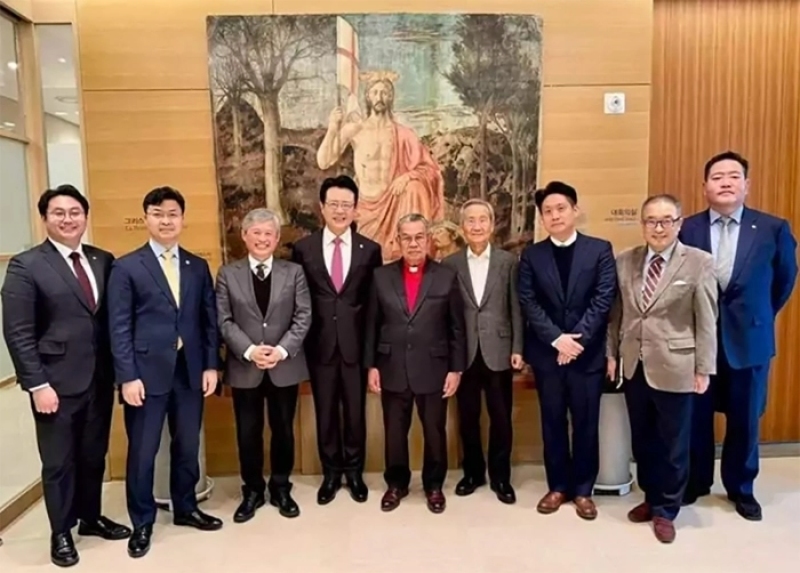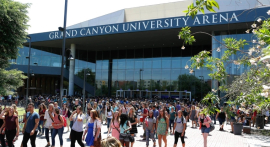
Just weeks after the conclusion of the Fourth Lausanne Congress on World Evangelization in Incheon, South Korea, the World Evangelical Alliance (WEA) is set to announce plans for its next General Assembly in Seoul from October 27 to 31, 2025.
However, prior to the official announcement ceremony scheduled for this Friday, several Christian groups in the country have criticized the plans and called for them to be put on hold.
According to reports from Korean Christian media, these groups expressed concerns about the secretive planning process, claiming it excluded the Christian member bodies in South Korea that the WEA had previously collaborated with. They also highlighted longstanding theological disagreements with some of WEA’s leaders, asserting that these issues must be addressed before any planning for a General Assembly can proceed.
As reported by Christian Today Korea (CT-K), the Rev. Junghyun “John” Oh, senior pastor of Sarang Church in Seoul, is expected to lead the preparations for the upcoming WEA GA, with support from Yoido Full Gospel Church, the largest Pentecostal church in the world.
Sarang Church announced a thanksgiving worship service to mark the launch of the “2025 WEA Seoul General Assembly Organizing Committee” on Friday, with Yoido’s Senior Pastor Younghoon Lee delivering the sermon.
CT-K notes that the announcement follows what it describes as months of “behind-the-scenes negotiations” between the WEA and Sarang Church.
Initially, Bp Efraim Tendero, the former secretary general and current global ambassador of the WEA, along with then-Secretary General Thomas Schirrmacher, met with Lee to discuss hosting the WEA GA in South Korea. However, when these discussions did not yield an agreement, the two WEA leaders reportedly approached Rev. Oh and requested “a venue and financial support,” which he responded positively to.
Nevertheless, CT-K points out that the decision to collaborate with a local church without involving its national member body did not adhere to the WEA’s regular procedures, raising concerns about potential backlash. As a global association, the WEA comprises nine regional and 143 national Evangelical Alliances, and Individual churches and national denominations cannot directly be part of the WEA, according to its bylaws.
In South Korea, the Christian Council of Korea (CCK) became the WEA’s member Alliance in 2009, but internal divisions later led to the formation of the Communion of Churches in Korea (CCIK), which was recognized as a member body in 2022. The Korea Evangelical Fellowship (KEF) has also long been affiliated with the WEA.
However, sources indicate that “neither CCK, CCIK, nor KEF has held official discussions with WEA on hosting the assembly,” with discussions reportedly limited to certain WEA leaders and Sarang Church. Concerns have been raised that excluding these organizations from such significant decisions could lead to considerable backlash.
Criticism has also been directed at Rev. Oh for his “premature decision” to move forward with hosting the WEA GA, especially given the ongoing transitional leadership within the WEA and uncertainties regarding financial support from the Korean church.
Hours after the CT-K article was published, a group of 1,000 pastors, elders, and professors issued a full-page advertisement in Kukmin Daily, a Korean church newspaper, with a statement titled “Reasons Why the Korean Presbyterian Church HapDong Cannot Engage with the WEA.”
Authored by leaders from the HapDong-affiliated Kwangshin Theological Seminary, the statement outlined issues they believe are incompatible with the Reformed faith, particularly criticizing the WEA for its connections to the pope and the World Council of Churches, as well as its engagements with Muslim leaders, which they view as indicative of religious pluralism.
Later that day, CCK President the Rev. Seo-young Jeong publicly voiced his opposition to the WEA GA, warning that the planned event risks exacerbating divisions among Korean churches.
“When the CCK previously attempted to host the WEA General Assembly [in 2014], the WEA sought a united Korean church for the assembly, not one marked by division. With the WEA’s pluralistic tendencies now even more pronounced, hosting the WEA Assembly in a way that risks further church discord is undesirable, and we cannot stand by and watch as division deepens,” Jeong stated.



















